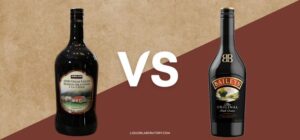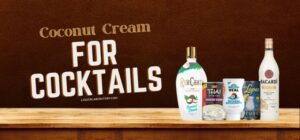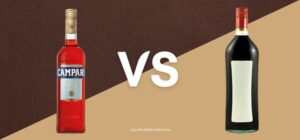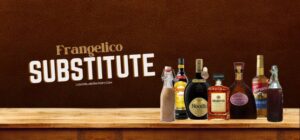Tequila is a distilled alcoholic drink composed of a blue agave plant– a native to Jalisco, Mexico.
Due to tequila’s flavor profile and character, it became popular worldwide, competing with other spirit expressions.
But how is tequila different from other alcohol? What’s in tequila that makes many fanatics prefer it over any other liquor?
Let’s uncover the secret of tequila and dive deep into its roots, ingredients, tasting notes, and varieties.
Table of Contents
ToggleHow Is Tequila Different From Other Alcohol?

Unlike other alcoholic beverages, tequila is made from the blue agave plant and must only be made within Mexico.
There are two laws involving tequila. Under Mexican law, tequila must be crafted from 100% agave plant to be labeled “tequila.”
But under US Law, they consider tequila made from 51% agave plant to be commercially sold as “tequila.”
Since this is not pure agave, Mexicans referred to this as “Mixtos” — not tequila.
Moreover, making tequila requires baking and cooking, unlike most liquors.
Besides, the alcohol content of tequila, which is generally 38% – 40%, is lower than other alcoholic beverages.
Though it can be as low as 31% or high as 55%, these tequila expressions are rare. But you have a variety of types to try, like the popular Anejo and Resposado.
What Makes Tequila Different?
Production
Making tequila involves six phases – harvesting, baking, and juicing to fermenting, distilling, and aging.
After harvesting blue agave, it will be baked until it forms like coal for extraction. Then, it will be juiced into pulp before undergoing fermentation.
The fermentation process usually forms the alcohol when the liquid is mixed with yeast.
Next is distillation, where the steam or heat presses the liquid into a sterilized copper tube that produces liquor containing 40% ABV, more or less.
“I enjoy tequila, which has a strange effect on people, and it makes parties more fun than warm white wine.”
– Simon Sebag Montefiore, British Historian
The last process is aging, where the distilled liquid is aged in barrels or stainless steel for two months to three years.
But unlike other hard liquors, some tequilas are not aged.
Ingredients

Authentic tequila has only one ingredient; it’s made from 100% blue agave plant, which most high-quality expressions contain.
But there is Mixtos tequila, which mixes blue agave juice with other spirits crafted from sugarcane juice.
Read: Top Non-Alcoholic Tequilas To Try
Place of Origin
Tequila must ONLY be made in Mexico, particularly in Jalisco, Tamaulipas, Nayarit, Michoacán, and Guanajuato.
However, it can be shipped to the US to be bottled and sold.
Flavor Profile

Tequila can be smooth, spicy, sweet, and sometimes toasty or fruity with an agave taste.
The flavor may vary depending on its variety, how long it’s been aged, and the aging method used.
Varieties like Anejo, Reposado, and extra Anejo, feature a toasty taste and silky texture. But other varieties tend to take on sweet and spicy notes.
Variety
- Silver or Blanco – this variety is bottled right after it’s been distilled. It can be unaged or aged for at least two months in neutral oak barrels or stainless steel.
- Reposado – aged for two months at the minimum (in any size of oak barrels) but no more than one year
- Anejo – aged for at least one year but no more than three years using small oak barrels
- Extra Anejo – aged for at least three years using oak barrels
- Joven or Oro – a mixto variety (not 100% agave) with additives for coloring
Is Tequila Healthier Than Other Alcoholic Drinks?
Compared to other alcoholic drinks, tequila is considered a healthier option because of its lower sugar and calories.
Also, unlike other distilled spirits, tequila has low impurities such as fusel oil and methanol when consumed reasonably.
To reap its benefits, you should choose tequilas with “100% Agave Plant” or “100% Blue Agave” labels.
These expressions are made with natural agavins or fructose, preventing the rise of your blood sugar levels or body fat.
Is It A Stimulant or a Depressant?

Although tequila is categorized as a stimulant, it has a sedative effect on the brain, the same substance found in this type of liquor.
Since tequila has high levels of caffeine, consuming large amounts of tequila functions as a depressant.
Read: Top Additive-Free Tequilas
Frequently Asked Questions (FAQs)
Is tequila the cleanest liquor?
The concept of “cleanliness” in liquor is subjective and can vary depending on individual preferences and experiences. However, some people consider tequila to be relatively “clean” compared to other spirits due to its production process and ingredients.
Tequila is typically made from the fermented juice of the blue agave plant, which undergoes distillation to produce the final spirit. Unlike some other spirits that may contain additives or impurities, high-quality tequila is often distilled using traditional methods that prioritize purity and flavor.
Additionally, some tequilas are made with 100% agave, meaning they contain no added sugars or other ingredients, further enhancing their perceived cleanliness. Ultimately, whether tequila is the “cleanest” liquor is subjective and can vary depending on personal taste preferences and experiences.
Does tequila give you a hangover?
Like any alcoholic beverage, excessive consumption of tequila can lead to a hangover, characterized by symptoms such as headache, nausea, fatigue, and dehydration. The severity of a hangover can vary depending on factors such as the amount of alcohol consumed, individual tolerance levels, hydration status, and overall health.
While some people may experience hangovers more frequently or intensely with tequila compared to other spirits, there is no scientific evidence to suggest that tequila specifically causes worse hangovers than other types of alcohol. Moderation and responsible drinking are key to minimizing the risk of experiencing a hangover regardless of the type of alcohol consumed.
What makes tequila different from other types of alcohol?
Tequila is a distilled spirit made primarily from the blue agave plant, which is native to Mexico. Several factors distinguish tequila from other types of alcohol:
Ingredients: Tequila is made from the fermented juice of the blue agave plant, while other spirits may be made from grains (such as barley, corn, rye, or wheat), fruits, or other sources of fermentable sugars.
Production Region: Tequila must be produced in specific regions of Mexico, primarily in the state of Jalisco and limited areas of neighboring states, under strict regulations set by the Mexican government. Other spirits may be produced in various regions around the world, each with its own unique production methods and regulations.
Aging Process: Tequila may be aged in oak barrels for varying periods, depending on the desired style and flavor profile. Aging can impart additional complexity and character to the spirit, with categories such as blanco (unaged), reposado (aged 2-12 months), and añejo (aged 1-3 years). Other spirits, such as whiskey or rum, may also undergo aging processes, but the types of barrels and aging durations can vary.
Flavor Profile: Tequila exhibits a range of flavors, including herbal, floral, fruity, and earthy notes, with variations depending on factors such as the agave species, production methods, and aging process. Other spirits have their own distinct flavor profiles, influenced by factors such as raw materials, fermentation techniques, distillation methods, and aging conditions.
Is tequila stronger than other alcohols?
The strength of tequila, like other spirits, is typically measured by its alcohol by volume (ABV) percentage. Most tequilas range from 35% to 55% ABV, although some may have higher or lower alcohol content depending on the specific product.
While tequila can be potent, its strength is comparable to other distilled spirits such as vodka, whiskey, rum, and gin, which also range in alcohol content depending on the brand and style. Ultimately, the strength of tequila relative to other alcohols depends on the specific product and its alcohol content.
What flavors can I expect from tequila compared to other alcohols?
Tequila often has herbal, fruity, and earthy flavors, with notes of agave sweetness, citrus, and spice, distinguishing it from the flavors of other alcohols.
How is tequila made differently from other alcohols?
Tequila is made through a specific production process that involves harvesting and cooking the agave plant, fermenting the juices, distilling the liquid, and aging it in barrels, which differs from the production methods of other alcohols.
Are there different types of tequila, and how do they compare to other alcohol categories?
Yes, there are different types of tequila such as blanco, reposado, and añejo, each with its aging process and flavor profile, comparable to the variations found in other alcohol categories like whiskey or rum.
Can I use tequila in the same way as other alcohols in cocktails?
Yes, tequila is versatile and can be used in a wide range of cocktails, similar to other alcohols, offering a unique flavor profile to mixed drinks.
Key Takeaways
From the production process to the aging, tequila has its own way of delivering booze to drinkers.
But among any other factor that makes tequila unique, it’s impressive to know the fact that it is a healthy option among other liquor types.
Its pure agave ingredient (for authentic tequilas) [1] creates a healthy alcoholic drink– with fewer calories and sugar.
So if you’re considering your health among anything else, go for tequila.
Reference:
















